Cooler Head Prevails
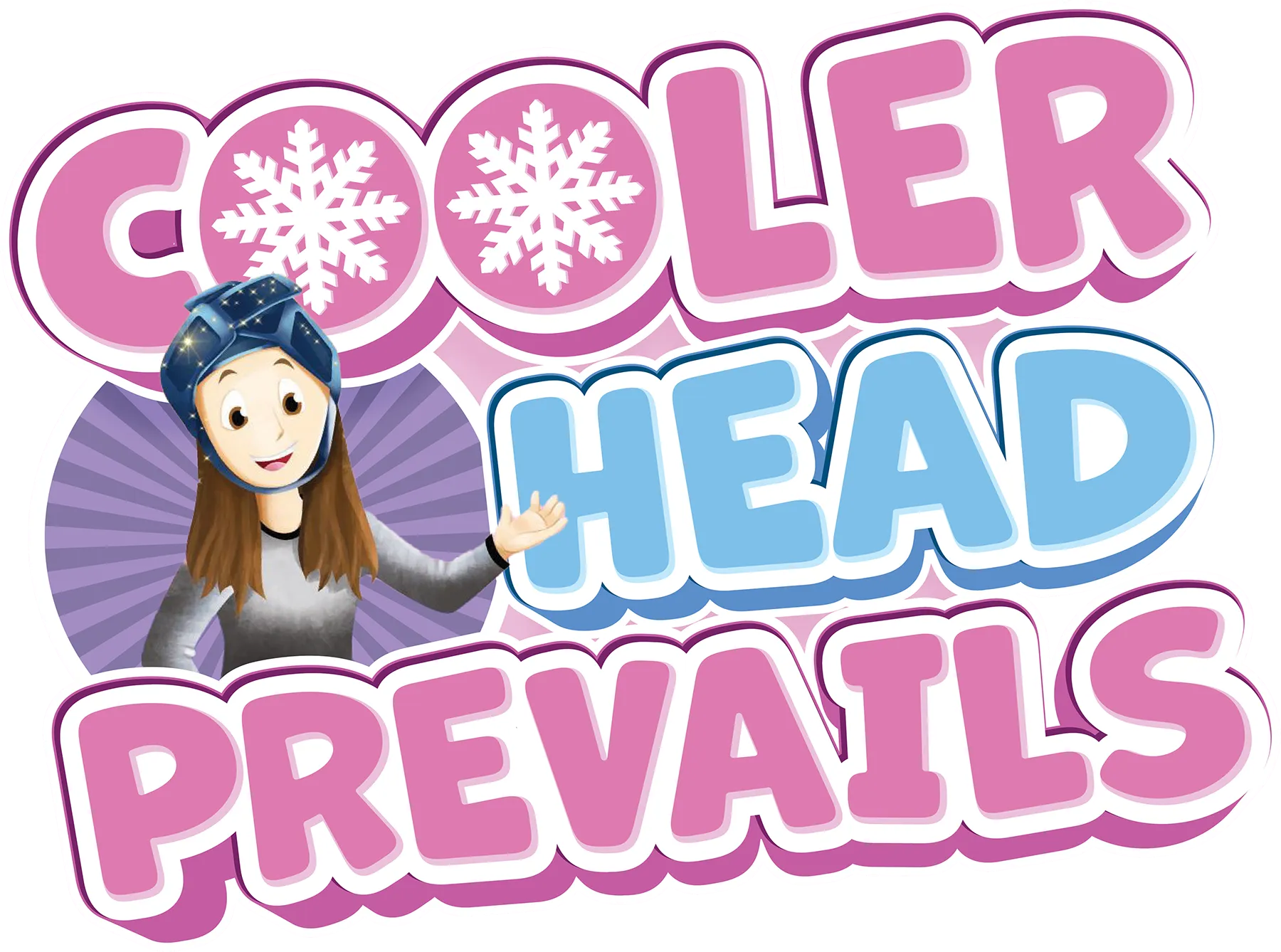
McClain tried a technique called “cold capping” to minimize hair loss during her chemo treatments. This involves wearing a cap filled with a sub-zero degree gel that cools and protects hair follicles from the effects on chemo.
“I was diagnosed a couple weeks after I turned 40 and it was a whirlwind of things, especially with three young kids – it was a lot,” McClain said. “I just wanted things to look normal and keep a sense of normalcy.”
Cold capping wasn’t easy, nor was there certainty that it would even work, but to McClain it was worth trying. She kept her hair. Now, the 2005 Slippery Rock University graduate and school teacher is a cold capping advocate who is writing children’s books to help families understand, endure and, in some ways, normalize the perils of a mother who is battling cancer.
Normal Life
“Going to SRU helped me broaden my horizons with great field placements,” McClain said. “I did a couple placements that diversified my background in city schools and especially in Vegas with a low socioeconomic school district. I loved it because I got to serve in that kind of community, which was very rewarding, but it also helped prepare me by pushing me out of my comfort zone with different experiences.”
While in Las Vegas she got a call from a principal in Florida.
“He said, ‘Oh, I see you’re from Slippery Rock; if you fly out for an interview, I’ll guarantee you a job,’” said McClain, whose first job was an elementary special education teacher in the Palm Beach County School District. “SRU is a well-known teaching college, even down there.”
At the time, teaching positions were harder to come by in western Pennsylvania than they are now, so the decision made sense and being near the beach didn’t hurt. Even better, she connected with one of her former high school classmates, Matthew, who was working in Jupiter, Florida, and the couple married before moving back to their hometown in 2008.
McClain worked seven years for the Allegheny Intermediate Unit teaching English as a second language and special education, during which she and her husband started raising a family. In 2015, McClain landed a job in her home district, Seneca Valley Schools, first as an elementary cyber teacher and then a TESOL position at Haine Elementary School.
Life was idyllic for McClain: teaching in her hometown, living in nearby Zelienople and taking three boys to sports practices. Once her youngest reached kindergarten, and McClain her milestone birthday, then came the unsettling news that she had breast cancer.
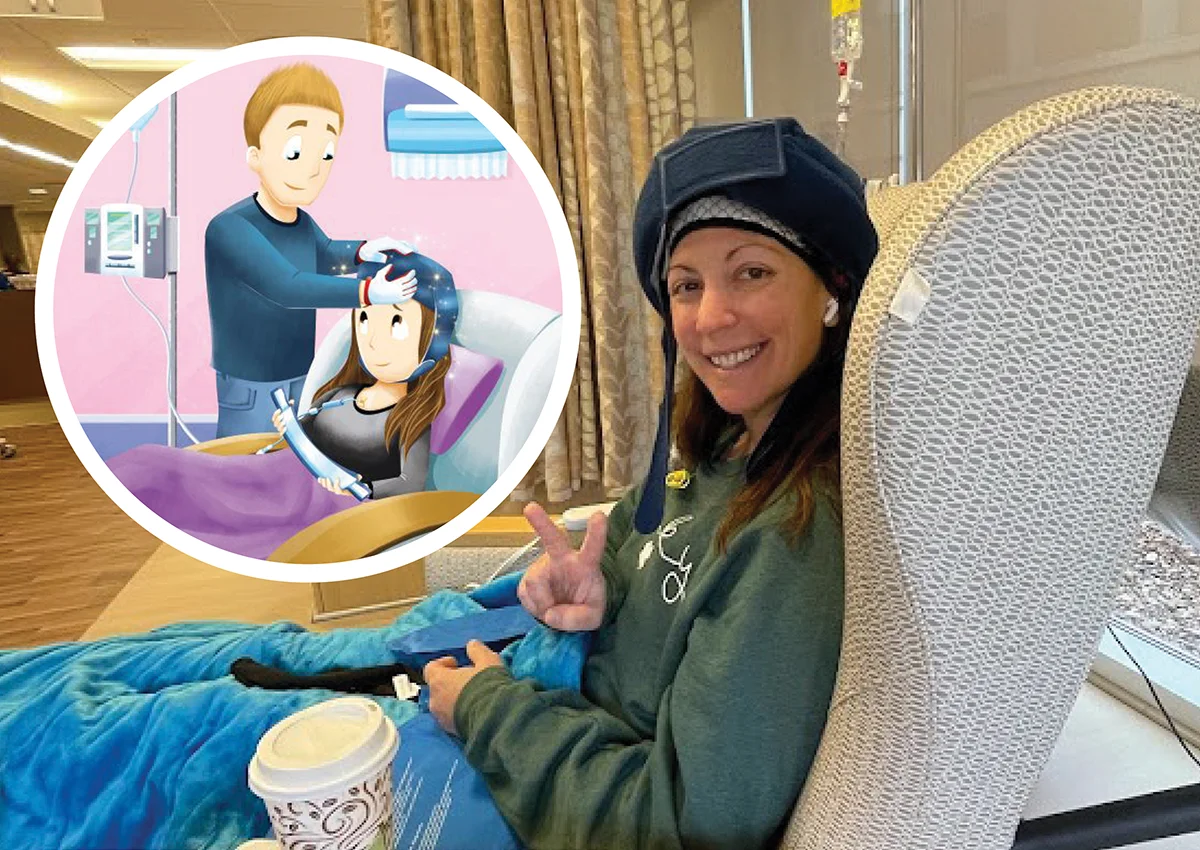
Disrupted by Cancer
“All the waiting put a damper on the holiday season,” McClain recalled. “I knew I had something, but I didn’t know what kind of cancer I had. Once I found out, I was actually relieved because then I knew there was a possibility that it would be curable.”
Her oncologist, Sarah Miller from Allegheny Health Network, told her it was Stage 2 cancer. That was Jan. 3, 2023. Two weeks later she had a mastectomy, during which Miller would determine if any of the cancer had spread.
“Sure enough, during surgery, one lymph node had spread and being younger, the cancer is usually more aggressive, and they just take more precaution,” McClain said. “After I woke up from surgery, I could just tell by the look on my husband’s face. It was not the news that I wanted to hear because that meant chemo and radiation. After that, everything moved so fast.”
McClain underwent chemotherapy once every three weeks from February to April, which was followed by a month of radiation treatment in June.
Cold Call
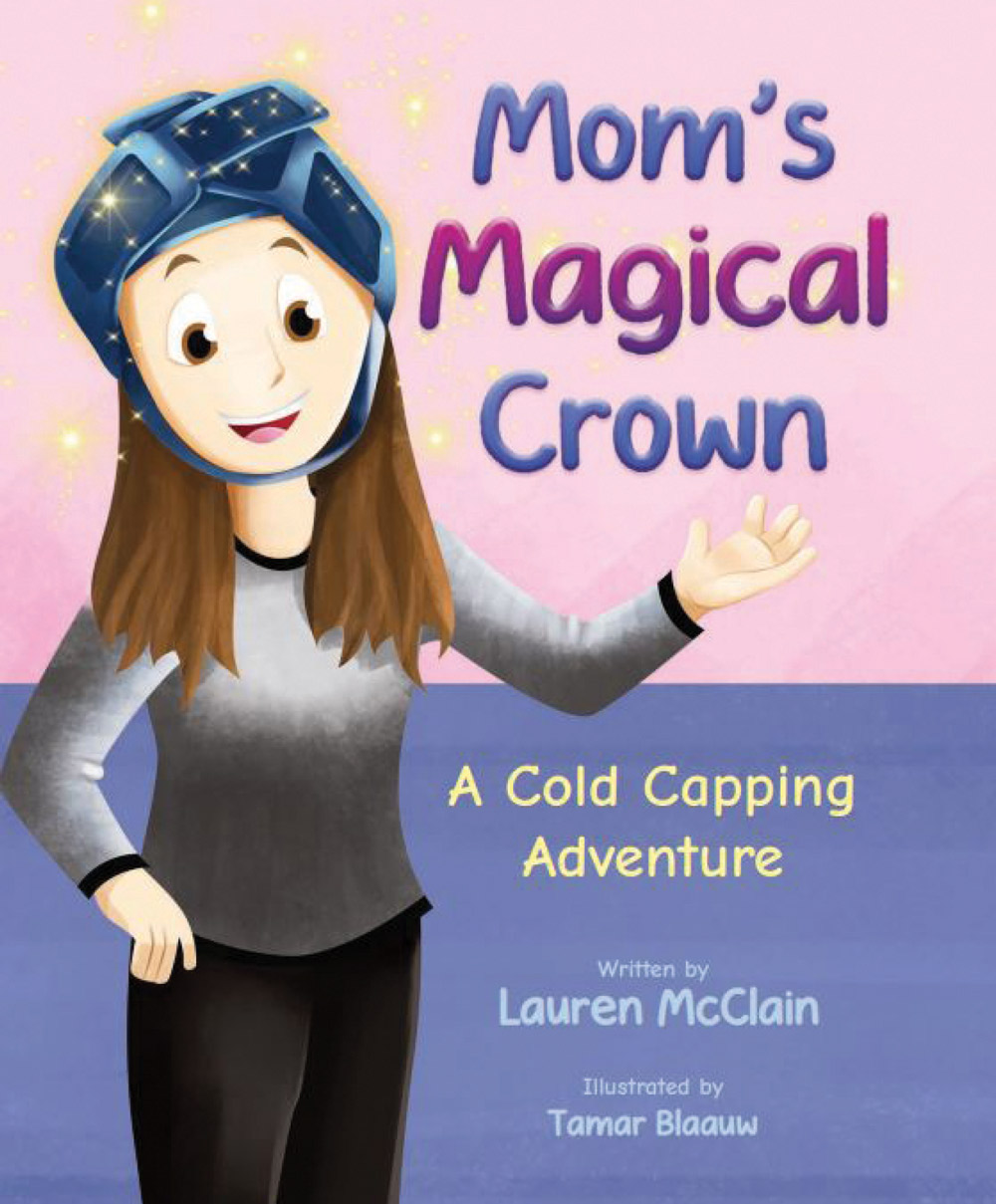
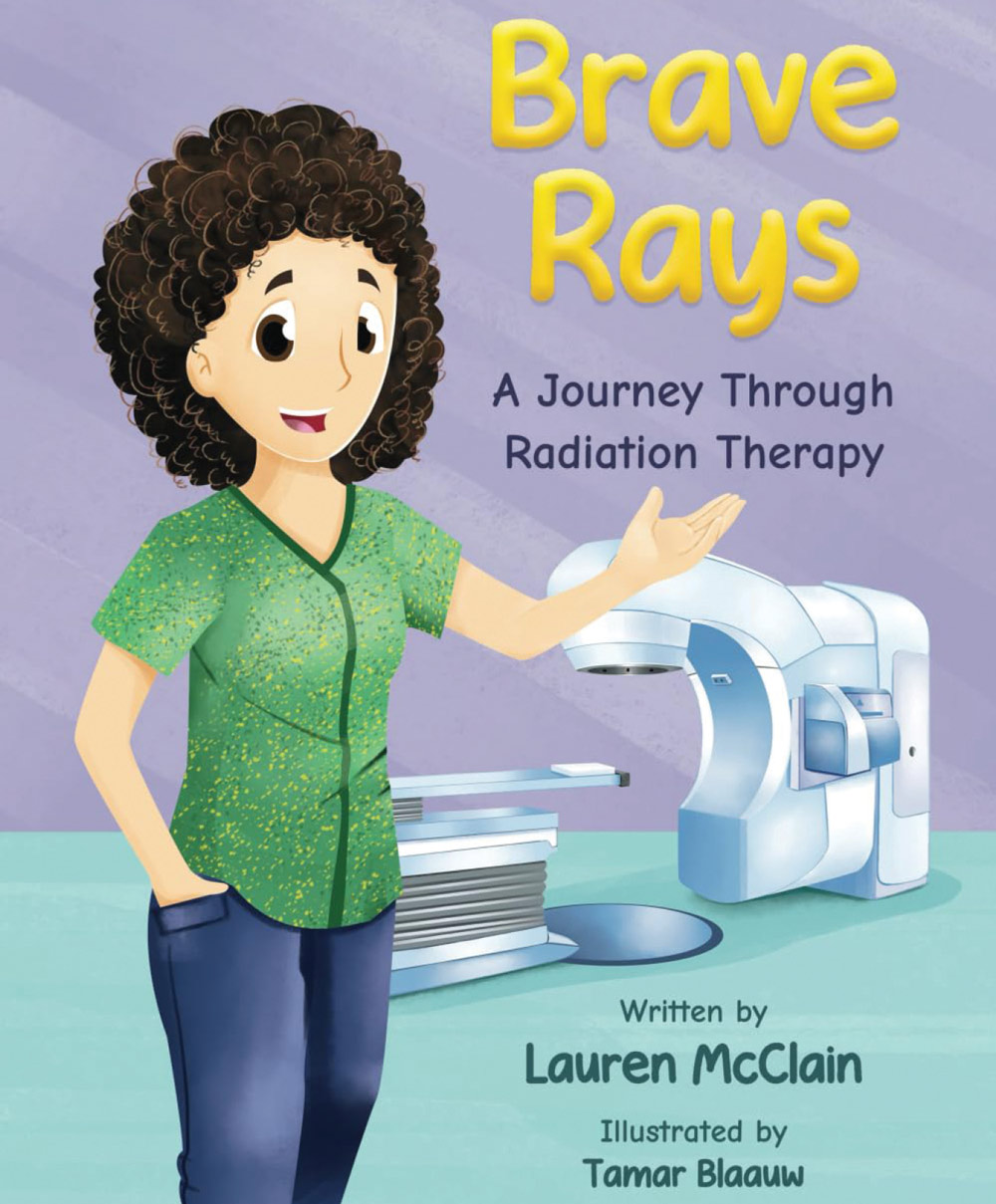
“I was down a lot of Google rabbit holes late at night, which I should not have been, but I saw this woman’s Tiktok and Instagram account and she was cold-capping,” McClain said. “She was a little bit younger than I was and I just watched all of her videos and I was like, ‘Wow, she’s almost done with treatment and she still has all of her hair.’ Then when I went in for my next oncology appointment, and my doctor had mentioned it as well and I said, ‘You know, it’s worth a try.’ If anything, it’ll preserve my hair follicles and I won’t have permanent alopecia because that can happen to some women with the type of chemo (I was going to start).”
According to her oncologist, 60% of cold-capping patients retain at least half of their hair, but 40% lose more than 50 percent of their hair. So it’s not foolproof. But it’s also not covered by health insurance, nor easy to do.
With the help from her husband applying the cap and checking it with a thermometer, McClain wore a cold cap from an hour before her chemo and for the remainder of the day, changing the cap every 25 minutes to maintain a temperature around minus-35 degrees Fahrenheit.
“It’s pretty torturous,” McClain said. “The first three were the worst, but then your head just goes numb after that. I was asking myself, ‘Why am I doing this?’ throughout, but in the end, for my mental health, it was 100% worth it. It even distracted me a little bit from what was going on with the effects of chemo because I had a goal of trying to save my hair.”
Crowning Achievement
“After you’re diagnoses with cancer, you’re just thrown so much information, folders upon folders of stuff. It’s a lot to digest,” McClain said. “My goal was just to make something a little bit easier for a mom and a woman going through it.”
When she was seeking materials to give to her children, she discovered that the resources were outdated and only focused on explaining why a mother is bald or has to wear a wig.
“When I was on a walk the one day I wondered if there’s anything out there that is about chemo and cold capping, so I did a Google search,” McClain said. “There was not one book about it, and I got to thinking, I think I can do this.”
McClain began the process of writing a children’s book about a mother who was cold capping. She got her thoughts together and wrote her story, with a little fictionalization, and eventually found an illustrator online through a freelance services website. By January of 2024, McClain was a self-published author of the book, “Mom’s Magical Crown.”
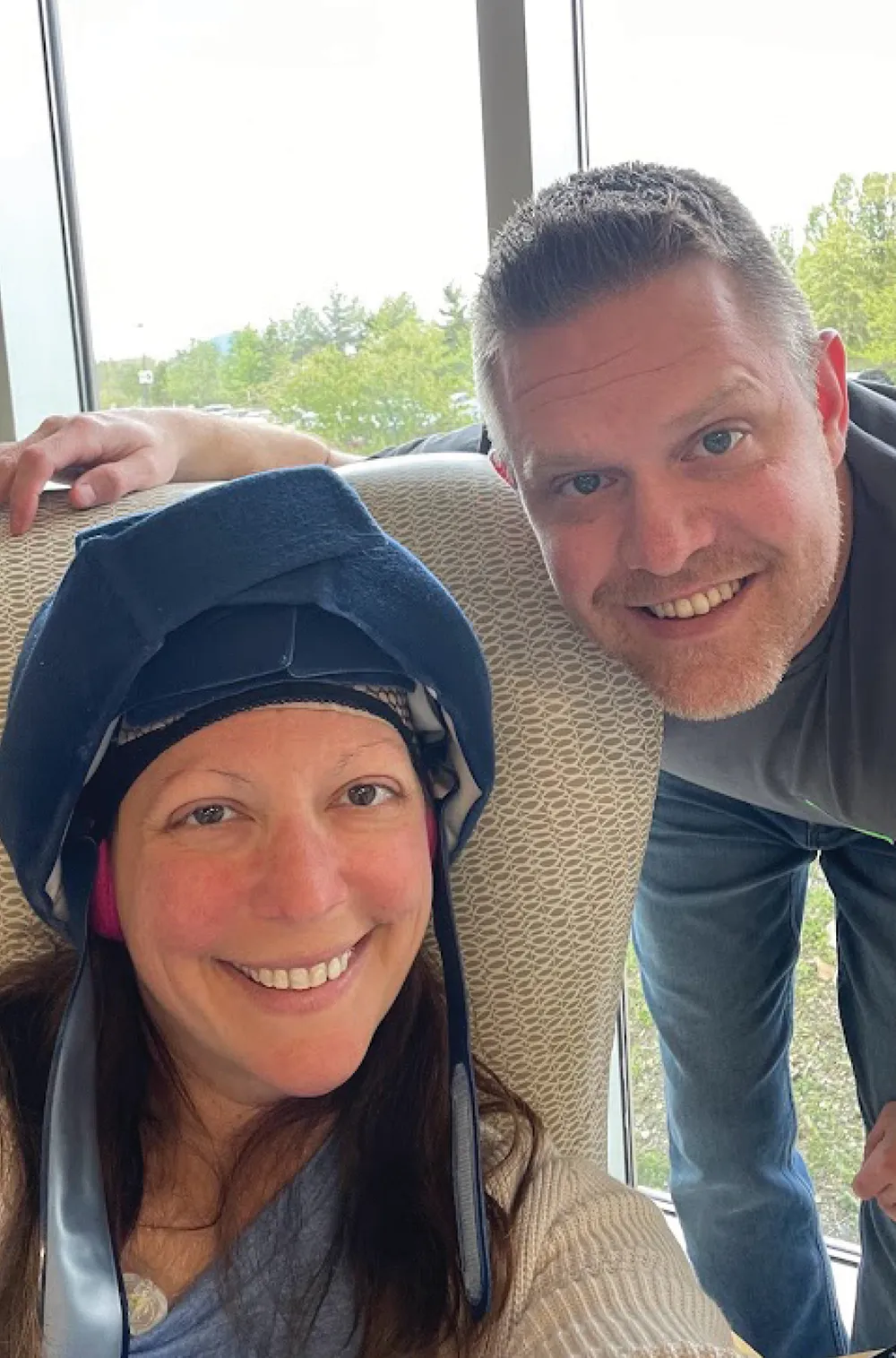
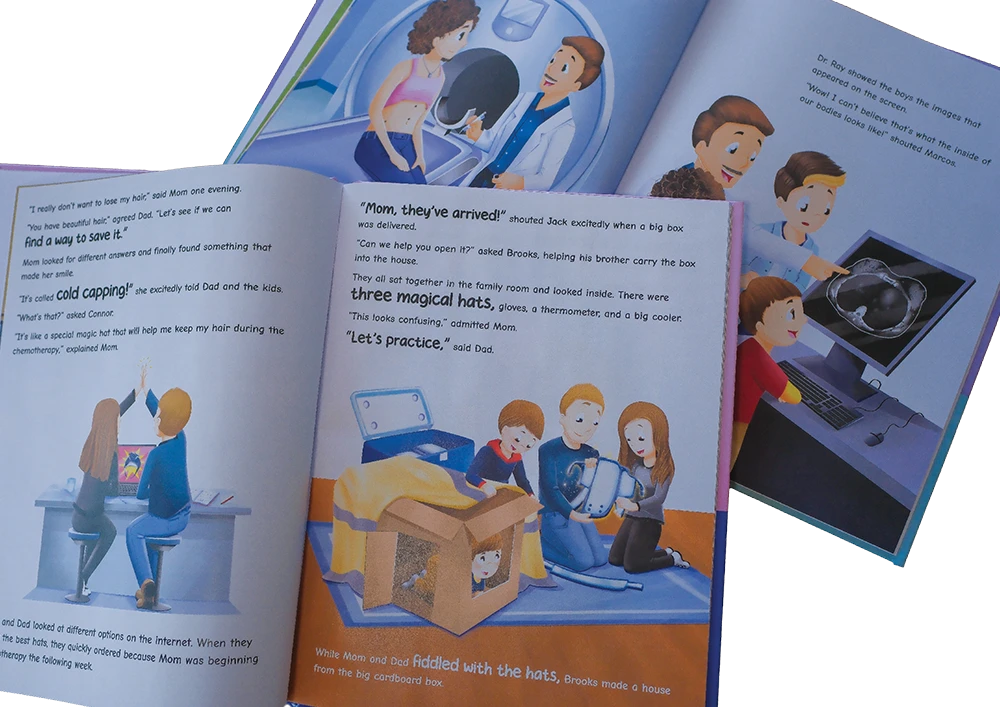

In addition to selling hundreds of copies of her book, McClain partnered with two foundations that provide money for women who can’t afford to cold cap. Additionally, an executive from Penguin Cold Caps, the product that she used, reached out and they started to include her book in cold caps for women in Canada.
“After I finished that book, I got the hang of it and figured this is kind of fun,” McClain said. “So I wrote one about radiation.”
“Brave Rays” is now available and coming soon is a third book about surgeries. She also wants to create a foundation that assists women in western Pennsylvania with funds to benefit from cold capping, which can cost $300 per chemotherapy treatment.
“This has been a very purposeful side gig which has drawn my attention away from the struggles I had,” McClain said.
And despite continuing to take preventive medications, McClain has all but closed the book on her fight with cancer.